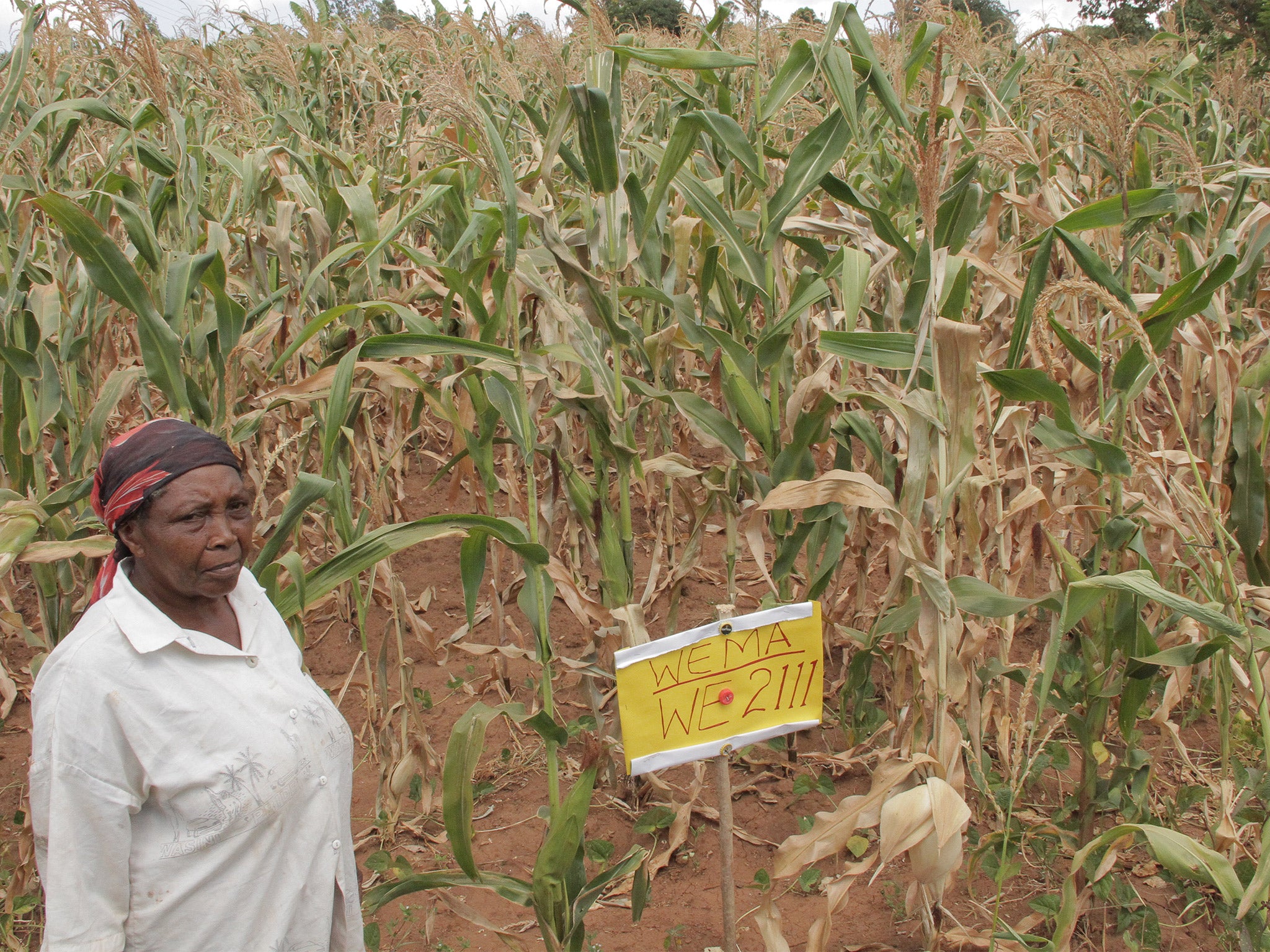The future of GM: A future decided by a rogue report and ill-health
A new strain of GM maize faces an uphill battle for approval in Kenya

The journey across Kenya’s upper eastern province to the village of Mukuyuni is hot, dusty and unsettling. The further you drive, the less prosperous the villages seem. Roadside shops are shut or disused and groups of men hang around in small groups, some drunk on local hooch.
The local maize plantations correlate with the diminishing prosperity. The healthier the maize, the wealthier the villages – and the further south east you go, the less healthy the crops become.
Most of the crops are brown and parched, with the corn small and underdeveloped. There has been no rain since early December and this year looks like to be a repeat of last year in Machakos County, where the Government had to spend nearly £2m on famine relief. Most people will get a crop of sorts – but not much. And that means less money to spend on education, healthcare and in the local shops.
The effects of the drought are evident at the small farm belonging to Mary and Joseph Ndunda. Much of their maize crop looks similar to that seen along the main roads. But a few patches are noticeably healthier. They are greener, taller and have well-developed and plentiful corn on them.
These crops are part of a field trial by the Water Efficient Maize for Africa (Wema) project – a programme funded by USAid and the Bill and Melinda Gates Foundation and run by scientists from the Kenyan Agriculture Research Institute. The idea is to make available the best Western agricultural technology in the developing world at the same price as Kenyan farmers pay for conventional seeds.
Since it began in 2008, Wema has succeeded in improving crop yields by between 20 and 25 per cent by developing drought-resistant maize plants. The hybrid maize plants undergoing field trials in Mukuyuni should exceed that when the crop is harvested.
But it is the next stage of Wema’s plans that are causing controversy. They want to begin field trial of a new strain of maize, unevocatively called MON487460. “MON” stands for Monsanto, and the new maize is genetically modified. But while it could increase yields by up to 40 per cent on 2008 varieties, the project is facing an uphill struggle to get official approval.
While Kenya was one of the first countries to introduce regulations to govern GM, it has since come up against political rather than scientific headwinds.
The problems began in 2012 with a study published by a French scientist, GM opponent Gilles-Eric Séralini, which suggested that rats fed with GM maize could develop tumours. The revelation led to a storm of publicity – and investigations by food safety regulators and other scientists. They concluded the data in the study did not support its findings and were strongly critical of its methodology.
The journal withdrew the paper but the damage was done. The Kenyan Public Health Minister was herself suffering from breast cancer at the time and broke down in tears at a cabinet meeting appealing for GM food to be banned. It was, and the ban still exists.
Since then, the future of GM crops in Kenya and the drought-resistant maize has been on hold – much to the frustration of local scientists. Murenga Mwimali, who is the country co-ordinator for Wema, said it was losing the public relations battle with GM opponents – to convince the public that the technology could help Kenya. “The onus is on the scientists to tell the story to the public,” he said. “But we seem not to be winning because the other side is more aggressive. For me it seems easier to tell a story that will create fear or evoke emotion than to tell you facts.”
But Wanjiru Kamau, of the Kenya biodiversity coalition – one of those groups opposing GM food in Kenya – does not agree. She said they were worried that Kenyan scientists like Mr Mwimali were “biased” in favour of GM.
“There is an issue of poor advice from technocrats who have been trained by Monsanto and the GM lobby,” she said. “Science is a double-edged sword... Once you alter the genetic component of something, genes affect many other character traits and we don’t understand the interaction. Think about thalidomide. It was only two decades later that they got to know that it was linked with health problems.”
Dr Richard Oduor, of the Kenyatta University in Nairobi, said it was unfortunate but understandable that one rogue paper could have such an affect. “You can blame the politicians as much as you want but if somebody comes to me and shows me the Séralini paper with those rats who have got cancer and you have suffered from it [cancer] yourself, you will certainly ban it.”
The former Health Minister is the aunt of the current President; she is said to exert a strong influence on him, and she is still opposed to GM. And in some senses the conventional breeding in the Wema programme has shown what can be done to improve yields and food security without it.
But it does seem odd that the future of GM in Kenya is being decided not of facts but on the basis of personal experience and a discredited science.
Subscribe to Independent Premium to bookmark this article
Want to bookmark your favourite articles and stories to read or reference later? Start your Independent Premium subscription today.

Join our commenting forum
Join thought-provoking conversations, follow other Independent readers and see their replies